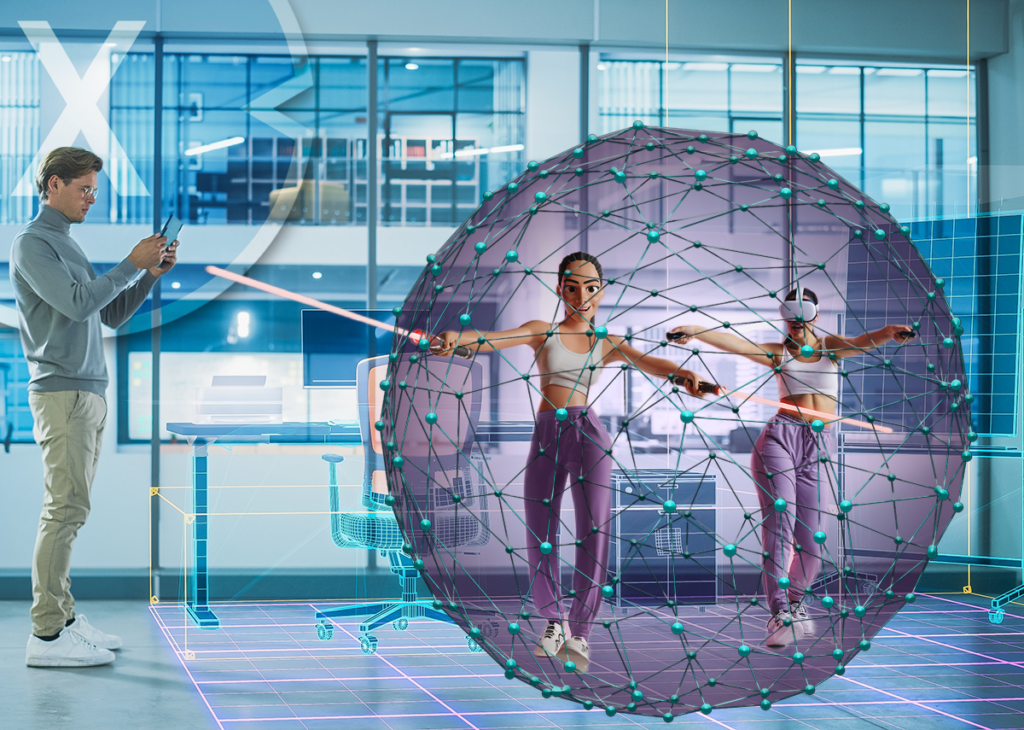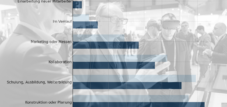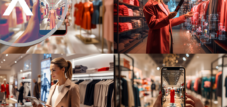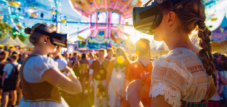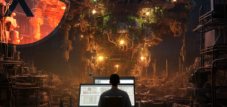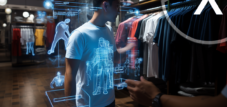Agency know-how in the area of extended reality: identifying industries and companies that can benefit most from AR marketing
Language selection 📢
Published on: October 29, 2024 / update from: October 30, 2024 - Author: Konrad Wolfenstein
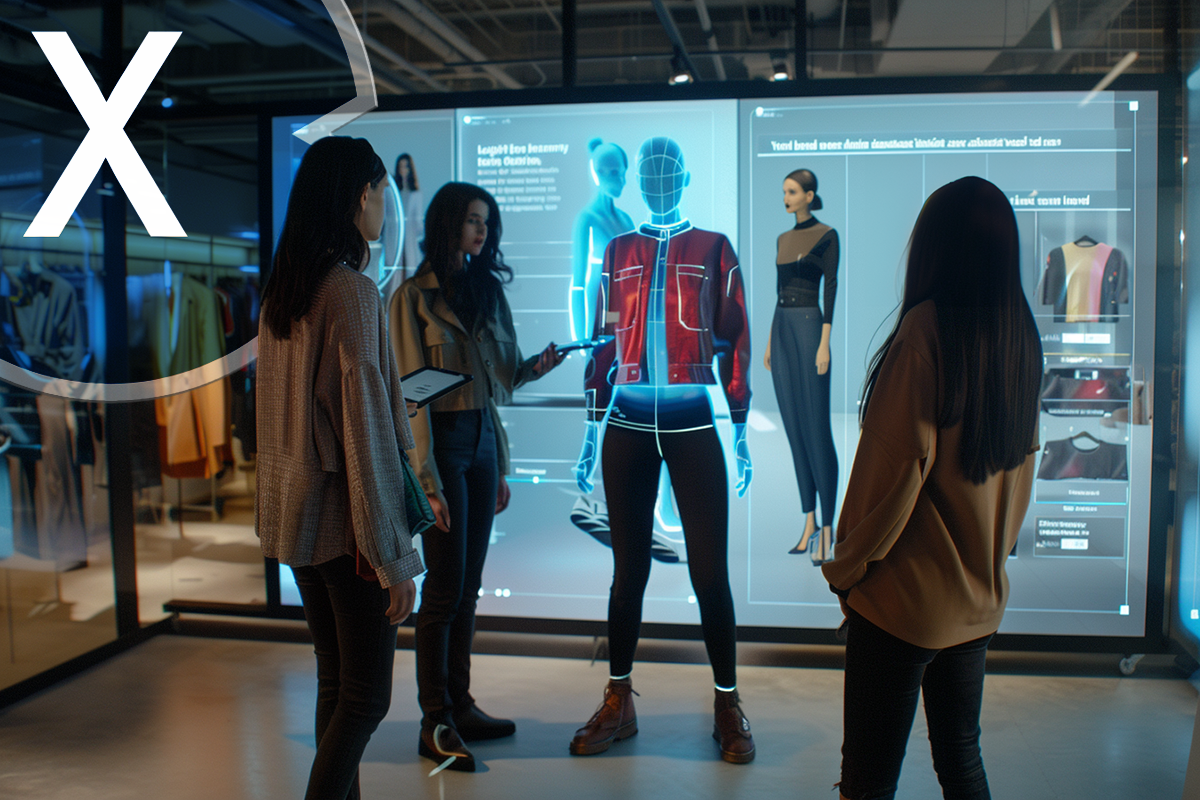
Agency know-how in the area of extended reality: Identification of industries and companies that can benefit most from AR marketing - Image: Xpert.Digital
🚀 Discover the future of marketing with Extended Reality (XR)
🤖 The role of XR in the digital transformation of marketing
Extended Reality (XR), which includes augmented reality technologies such as Augmented Reality (AR), Virtual Reality (VR), and Mixed Reality (MR), is one of the most innovative technologies in the marketing space today. It offers companies completely new ways to interact with their customers and create experiences that go far beyond traditional approaches. In particular, augmented reality, which integrates digital content into the real world, has become increasingly important in recent years. But which industries and companies benefit most from this technology, and how do they use AR marketing successfully?
Suitable for:
1. 🛒📱 Retail and eCommerce
One of the industries that can benefit greatly from AR marketing is retail, especially e-commerce. Companies like IKEA, Amazon and Shopify have implemented AR solutions to give customers a realistic idea of how products would look in their own spaces. For example, the IKEA app allows users to virtually place and customize furniture in their home. Such applications significantly improve the shopping experience and reduce uncertainty, resulting in higher sales and lower return rates.
AR can also make online shopping more interactive and personal. AR features allow customers to take a closer look at products and, for example, try on clothes or make-up virtually. Companies such as L'Oréal and Sephora, which have integrated virtual fittings into their apps, are playing a pioneering role here. Such experiences build trust and increase customer satisfaction because potential buyers have a clear idea of how the product looks on them before purchasing.
2. ✈️🏨 Tourism and travel industry
The tourism industry also benefits greatly from augmented reality. Hotels and tour operators can use AR to offer potential guests a virtual tour of the hotel, room or surrounding area. In this way, the customer can build an emotional connection and get a clear picture of the accommodation before booking. Companies like Marriott and Hilton are experimenting with AR to offer digital experiences to guests before they arrive and provide information about nearby landmarks and attractions.
Another field of application in tourism is navigation. Tourists can be guided through cities using AR maps and applications, providing valuable information about historical buildings or landmarks. These immersive experiences increase traveler interest and satisfaction and also promote tourism growth through innovative and engaging content.
3. 🚗🔧 Automotive industry
The automotive industry is also one of the pioneers in the application of AR technologies. Companies like Audi, BMW and Tesla are using AR to offer customers an improved and innovative buying experience. Audi, for example, uses an AR application that allows potential buyers to preview the vehicle with different colors and interior features in a real-world environment. This simplifies the decision-making process and gives customers the feeling that they can better assess their choice.
AR is used not only in the sales process, but also in maintenance and customer service. Using AR applications, service employees or even customers themselves can get problem solutions or vehicle maintenance instructions in real time, increasing service quality and reducing costs. Another example is the integration of AR into head-up displays, whereby navigation instructions and vehicle status information are projected directly onto the windshield. This not only increases driver safety, but also offers a modern driving experience.
4. 🎓📖 Education sector and e-learning
In the education sector, AR creates new opportunities for interactive and immersive learning processes. Schools and universities use AR applications to make lessons more clear and practical. Anatomy apps, for example, allow medical students to explore and analyze the human body virtually. This makes complex issues easier to understand and more interesting.
In technical education, AR can also support the learning process by allowing students to visually examine machines or technical processes without the need for physical equipment or rooms. This is particularly helpful in subjects where real-world experience is important but would often be difficult to implement due to high costs or risks. By virtually simulating various scenarios and experiments, AR allows students to learn in a practical and safe manner.
5. 🏢🏗️ Real Estate and Architecture
AR offers great advantages for the real estate industry, especially when it comes to visualizing construction projects and real estate. Potential buyers or tenants can use AR to take a virtual tour of the property without having to be physically present. This makes decision-making easier and saves time. Companies like Zillow and Redfin are already using such technologies to make their offers more attractive and increase reach.
In architecture, AR is used to project designs and construction plans directly into the real environment. This allows architects and civil engineers to see how the finished project will appear in the space and make adjustments if necessary before construction begins. This not only saves costs, but also increases the accuracy and quality of planning.
6. 🎮📺 Entertainment and Media
The entertainment industry was an early adopter of AR to provide users with immersive experiences. The integration of AR into games and media creates new forms of entertainment that go beyond traditional television or cinema. The famous game Pokémon GO has shown how successful AR-based applications can be in motivating people to explore their surroundings and experience a digital world at the same time.
AR is also increasingly being used on social media. Platforms like Instagram and Snapchat have popularized AR filters that allow users to be creative with their images and videos. Companies can use such filters as a marketing tool to make their brand better known in a fun way and to interactively involve users. This strengthens customer loyalty and offers brands an innovative way to connect with their audience.
7. 🏥🩺 Healthcare
AR also offers exciting application possibilities in the healthcare sector. Doctors can use AR technologies to make more precise diagnoses and plan operations better. In surgery, AR allows vital information and virtual cross-sectional images to be projected onto the patient's body, increasing accuracy during procedures. Companies like Medtronic and Philips are developing technologies that provide doctors with real-time information, improving efficiency and safety in patient care.
For the training of doctors and nursing staff, AR offers the opportunity to simulate operations and medical procedures virtually, creating a risk-free and practical learning environment. AR is also increasingly being used for patient therapy, for example in rehabilitation or pain therapy, to promote the patient's well-being and improve the chances of recovery.
8. 🍽️🏪 Food and gastronomy
AR can also offer added value in the food and hospitality industries. Restaurants can display menus in AR, giving guests a virtual look at the dishes before ordering. This increases customer interest and increases transparency. Starbucks and other hospitality brands are using AR to enrich the customer experience and foster emotional connection.
Additionally, AR can be used in product packaging to provide additional information about ingredients or the origin of ingredients. Customers simply scan the product with their smartphone and receive interesting information, which creates transparency and increases consumer trust.
9. 🏢💼 Insurance industry
Insurance companies can also use AR to make complex products and services more understandable. One example is assessing damage after an accident: With the help of AR, policyholders or experts can capture a picture of the damage and analyze it digitally, which significantly speeds up the claim settlement process. This allows insurance companies to work more efficiently and at the same time increase customer satisfaction.
For customer advice and training, AR also offers interactive simulations that make it easier for policyholders to understand the insurance conditions and benefits. Insurance companies such as Allianz and Zurich are already experimenting with such technologies to improve contact with their customers and increase trust.
🚀🔗 Further development of AR for marketing and customer loyalty
Augmented Reality is a pioneering tool that offers significant advantages to many industries. Through interactive and immersive experiences, companies can engage and engage their customers in new and exciting ways. The advancement of AR will transform marketing and customer engagement even more in the coming years and expand the possibilities for creating customized, experiential experiences. Companies that use this technology early and in a targeted manner can secure a decisive competitive advantage and strengthen their innovative strength.
Suitable for:
📣 Similar topics
- 🛍️ Revolution in retail: experiences through AR
- 🌍 Virtual Tourism: Traveling using AR
- 🚗 Innovative driving: AR in the automotive industry
- 🎓 Learning with reality: AR in the education sector
- 🏠 Experience real estate in a new way: AR in architecture
- 🎮 Entertainment redefined: The AR revolution
- 🩺 More precise medicine: AR in healthcare
- 🍽️ Culinary experiences: AR in the hospitality industry
- 📝 Understanding insurance: AR as an intermediary
- 🔎 Marketing of the future: customer loyalty with AR
#️⃣ Hashtags: #AugmentedReality #InnovativeMarketing #VirtualExperiences #TechnologyOfTheFuture #InteractiveExperiences
🗒️ Xpert.Digital: A pioneer in the field of extended and augmented reality
🌟🚀🔍 Corporate successes with AR technology
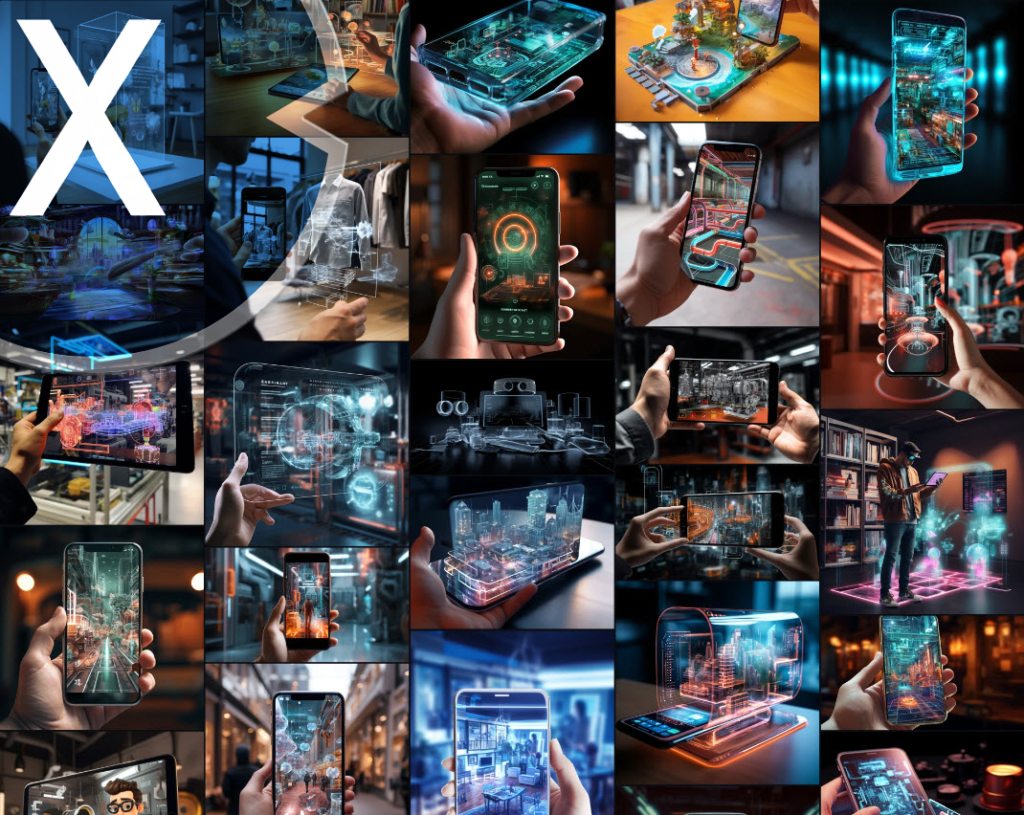
Augmented Reality as part of a broader marketing strategy – Image: Xpert.Digital – AI & XR 3D Rendering Machine (art photo/AI)
🎨📱💡 Successful companies in AR marketing
IKEA
The IKEA Place app allows customers to virtually place furniture in their own home. This helps them find the right pieces and makes the buying process easier.
Sephora
The beauty brand offers a Virtual Artist feature on its app that allows customers to test makeup products on their own faces in real time.
Volkswagen
The car manufacturer uses AR to offer customers an interactive presentation of new vehicle models. Using AR, functions and design highlights can be directly experienced.
Pepsi
In an attention-grabbing campaign, Pepsi used AR to transform a London bus stop into a portal to impressive scenarios, such as simulated UFO landings or surfacing tigers, to surprise and entertain those waiting in line.
🎉🤝🌟 Benefits of AR Marketing
1. Increase engagement
AR offers an interactive experience that holds customers' attention for longer. This leads to stronger brand loyalty and increases the likelihood of a purchase.
2. Personalization
Thanks to the opportunity to customize products and experience them in their own environment, customers feel personally addressed. This improves customer satisfaction and loyalty.
3. Innovative brand image
The use of AR positions a company as progressive and innovative. This can leave a positive impression, especially among younger target groups.
4. Data generation
AR applications offer companies the opportunity to collect valuable data about their customers' behavior and preferences. These insights can be used for future marketing strategies.
5. Cost savings
Through virtual product presentations, companies can reduce costs for physical samples or showrooms.
🚧📈🎯 Challenges when using AR
Technology acceptance
Not all customers are familiar with AR or have access to the necessary devices. Companies need to ensure that their AR offerings are user-friendly and accessible.
Development costs
Creating high-quality AR content can be costly. It requires investment in specialized software and skilled personnel.
data protection
When collecting user data via AR applications, strict data protection guidelines must be adhered to in order not to jeopardize customer trust.
🔮📱🌐 The future of AR in marketing
As hardware and software continue to improve, AR is becoming more compelling and accessible. The introduction of 5G technology and more powerful mobile devices will further drive the proliferation of AR applications.
Suitable for:
- Dynamic and static Industrial – Consumer – Customer – Business Metaverse – influence on V-Commerce and 2D matrix code
- From Barcodes to Metaverse: The Role of 2D Matrix Codes in Future Product Visualization and Product Information
🏁💡🤝 Innovation and claim
Augmented reality in marketing opens up a variety of opportunities to reach customers in innovative and appealing ways. Sectors such as retail, automotive, cosmetics and tourism are already showing the potential this technology has.
Companies that adopt AR early can gain a competitive advantage, strengthen their brand presence and offer a more immersive customer experience. It is time to recognize the opportunities of AR and strategically integrate them into marketing planning.
The fusion of the real and digital worlds will shape marketing in the future. Companies that actively shape this trend will benefit from it in the long term and position themselves successfully on the market.
📣 Similar topics
- 🛍️ Successful AR strategies in retail
- 🚗 Virtual Reality in the Automotive Sector: A Key to Success
- 💄 Sephora's Digital Transformation: Makeup in the AR Age
- 📱 AR as the future in marketing: potential and trends
- 👓 The fusion of the real and the digital
- 🎯 Innovation through interactive experiences: AR in focus
- 💼 Competitive advantage through augmented reality
- 📈 Increasing customer loyalty with AR technology
- 💰 Cost optimization and efficiency through AR
- 🛡️ Overcome challenges in AR marketing
#️⃣ Hashtags: #InnovativeMarketing #AugmentedReality #TechnologyTrends #CustomerExperiences #FutureMarketing
We are there for you - advice - planning - implementation - project management
☑️ SME support in strategy, consulting, planning and implementation
☑️ Creation or realignment of the digital strategy and digitalization
☑️ Expansion and optimization of international sales processes
☑️ Global & Digital B2B trading platforms
☑️ Pioneer Business Development
I would be happy to serve as your personal advisor.
You can contact me by filling out the contact form below or simply call me on +49 89 89 674 804 (Munich) .
I'm looking forward to our joint project.
Xpert.Digital - Konrad Wolfenstein
Xpert.Digital is a hub for industry with a focus on digitalization, mechanical engineering, logistics/intralogistics and photovoltaics.
With our 360° business development solution, we support well-known companies from new business to after sales.
Market intelligence, smarketing, marketing automation, content development, PR, mail campaigns, personalized social media and lead nurturing are part of our digital tools.
You can find out more at: www.xpert.digital - www.xpert.solar - www.xpert.plus



